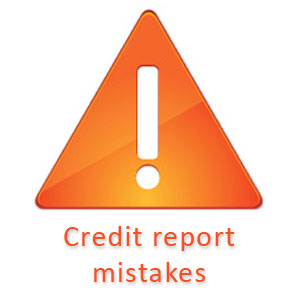7 Strategies to rectify mistakes on your credit report
It is very natural to get frustrated when you fail to wipe out the errors from your credit report after various attempts. You may feel dejected. You may think that there is no other choice. You just need to get used to the fact that errors can’t be removed from your credit report.
As per the Fair Credit Reporting Act (FCRA), it is mandatory for the credit bureaus to carry out an investigation when a consumer disputes errors on his/her credit report. However, they hardly conduct an investigation in reality. Usually, credit bureaus completely depend upon the information provided by collection agencies/creditors. If the creditors show that the information on the consumer’s credit report is not wrong, then the mistakes will be there on his/her credit report.

As the credit reporting agencies don’t devote much time in conducting the investigation, so they’’re compelled to trust the information given by creditors and debt collection agencies. Consumers wait for days after days to get the inaccurate information removed from credit report. They dispute the errors several times, but without any positive result. Ultimately, they have to get help from the legal experts to resolve the problems.
Credit experts understand the problems of the consumers. However, they feel that consumers shouldn’t lose hope. Rather, they should try out some strategies before seeking assistance from the legal experts.
Here are some effective strategies which consumers can use to rectify mistakes on their credit report.
1. Order a copy of credit report: Consumers should request the credit bureau (one which is reporting the wrong information) to send a copy of credit report. Consumers would need this report at the time of disputing the information. Consumers should refrain from obtaining credit reports from creditors. These credit reports may not contain the correct information.
2. Have a look at all the errors: Consumers should have a look at their credit reports minutely. It may be the case that they have missed out some small errors (wrong contact details, spelling mistakes, inaccurate Social Security Number) when they were busy in detecting the big errors. They should find out who have checked their credit reports in the last few months. If a name of a company doesn’t ring the bell, then consumers may ask for a clarification from the credit bureau.
3. Draw attention to the errors: It is important to send a photocopy of the first page and the pages containing mistakes. Consumers should circle the errors on your credit report. In case, there are countless errors on the credit report, then consumers can put a number beside each mistake. Besides, they should take several photocopies of their credit reports and keep them in files.
4. Send a dispute letter: It would be a mistake to dispute the errors online as consumers don’t get much scope to relate the full story. All they can do is to state the nature of dispute. For instance: “the debt is not mine”, or “the bill was repaid”. So, it is better to give full details of the case in a dispute letter. Consumers can explain various nuances of the case in the dispute letter. Moreover, they can enclose a copy of their checks or Social Security carsd with the letter. If consumers feel that the credit bureau has not corrected a proper mistake, then they can show these documents as proof to the court.
5. Send separate letters: If there are multiple errors on credit report, then there is no point in disputing them together. Consumers should send a single letter for every mistake to the 3 credit bureaus. This will increase the chances of getting success.
In fact, consumers should keep the copy of letters sent to credit bureaus in different files. This will help them to keep a track of what has been sent to whom.
6. Write letters in simple language: Sometimes, consumers fill out their credit reports with legal terms and verbose. They don’t realize that good dispute letters are those which are written in simple language. The letters should be brief and to the point. Consumers should clearly state the reason for disputing information.
7. Show proper evidence: Simply stating the fact is not enough. Consumers should back up their claims with proper evidence. They should enclose relevant documents with the letters. Consumers should never give a scope to the credit bureaus to say that proper evidence was not given to them.
Finally, if consumers don’t get satisfactory result after following the aforementioned strategies, then they can seek help from an attorney to fix the errors. They can find out a good attorney from the official website of the National Association of Consumers Advocates. Consumers can just explore the list of attorneys and determine if they can tackle your FCRA case successfully.
